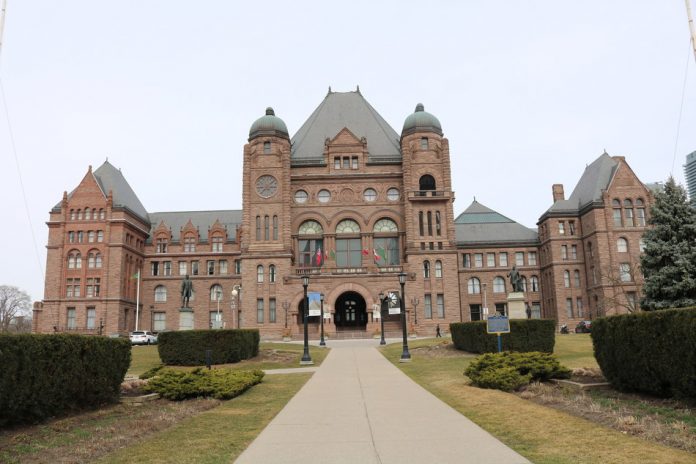The Ontario government intends to introduce legislation that, if passed, would require temporary help agencies (THAs) and recruiters to have a licence to operate in the province. Proposed changes would enable officers to levy penalties against an unlicensed THA or recruiter or a business who is using an unlicensed operator. As well, those who use deceitful recruiters could be required to repay workers for illegal fees charged. Ontario is also proposing to hire a dedicated team of officers to crack down on THAs and recruiters who are exploiting and trafficking domestic and foreign workers.
“From day one, my ministry has worked to ensure any employer who abuses the rights of their workers – no matter their passport – will quickly find our officers at their front door,” said Monte McNaughton, Minister of Labour, Training and Skills Development. “Today’s announcement sends a clear message to anyone who still thinks they can break the rules that time is up. This legislation would, if passed, be the toughest of its kind in Canada – ensuring every worker in Ontario has unprecedented protection today and, in the years to come.”
Inspections by ministry officers have shown that there are multiple temporary help agencies in Ontario that are illegally paying people below the minimum wage and denying other basic employment rights. In doing so, they gain an unfair competitive advantage over law-abiding agencies by undercutting rates.
“ACSESS strongly endorses the establishment of a licensing regime ensuring that all temporary help agencies comply with their legal obligations,” said Mary McIninch, Executive Director, Government Relations of the Association of Canadian Search, Employment and Staffing Services. “This initiative creates a level playing field and results in a fairer industry for THAs, their clients and assignment employees alike. We applaud the government for taking a bold approach that includes enforcement initiatives against THAs that operate illegally and the client companies that use them.”
Under the proposed legislation, THAs and recruiters would be vetted before being issued a licence to operate. Applicants would need to provide an irrevocable letter of credit, that could be used to repay owed wages to workers. Penalties could be issued against unlicensed agencies and recruiters as well as the companies who use them, with proactive inspection measures to ensure compliance with applicable requirements. If the legislation is passed, the government intends to require licences as early as 2024.
Quick Facts
- In 2020-21 the government focused inspections on THA use in farms, retirement homes, food processing, and warehousing facilities. As of October 1, 2021, just over $3.3 million was found owing to employees and approximately half has been recovered.
- Non-compliance during the 2020-21 campaign was found in areas such as minimum wage, record keeping, misclassification, hours of work, public holiday pay, overtime pay, and vacation pay.
- Before the licensing system takes effect, the government is also proposing to hire a dedicated team of officers to address labour trafficking by cracking down on illegal practices and recover unpaid wages for exploited workers.
- In February 2019, a raid in Barrie and Wasaga Beach involving the Canadian Border Services Agency, Barrie Police, and Ontario Provincial Police rescued more than 60 migrant workers from a labour trafficking ring. Third-party recruiters were involved and were charging workers illegal fees and exercising control over their movements.
- There were 2,257 Temporary Help Agencies operating in Ontario in July 2020 according to data from the Workplace Safety and Insurance Board (WSIB).
- According to Statistics Canada, between June 2015 and 2019, temporary help agencies had an increase of about 34 percent in operating revenue, 32 percent in operating expenses and 23 per cent in salaries, wages, commissions, and benefits.
- According to the WSIB, there were about 128,000 full-time employees employed by temporary help agencies in 2019, representing 2.6 percent of employment in Ontario.








